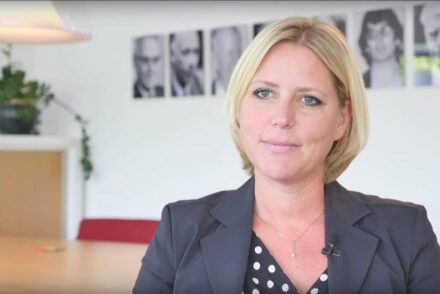The fight for open access
By 2024, all scholarly publications by Dutch researchers should be freely available, says the Dutch Cabinet. This is currently the subject of negotiations between publishers and universities. Koen Becking, president of the Executive Board of Tilburg University is a delegate for the latter party. Yet, both outside and within the university, the questions up for debate are: can publishers be persuaded to go all-in for open access, and more importantly, is it the best way forward?
Tilburg University made national headlines early this month; the university cancelled its subscriptions to prestigious scientific journals Science and Nature. The costs could no longer be covered and there were no other options, since many other journals are sold in bundles, or ‘Big Deals’. The university put out a statement, “Tilburg University cannot pull out of Big Deals – the majority of our subscriptions – half way. Regarding the Big Deals up for renegotiation, the Dutch universities have agreed to proceed in concert for now, due to the intended switch to open access.”
They will be operating in concert with the aim of having all articles by Dutch researchers available free of charge by 2024. Sander Dekker, State Secretary for Education, wrote this in a letter to the Dutch House of Representatives in 2013. The content of most scientific journals can currently be found behind publishers’ paywalls. Universities pay annual subscription fees for access. Last year, the Association of universities in the Netherlands (VSNU) opened negotiations with various large publishers to turn the State Secretary’s vision into reality. “We want every scientific paper to be published open access (OA) without an increase in the current subscription fees”, Koen Becking says.
In open access publishing, the author, not the reader, pays the publishing costs. The researcher pays a preliminary article processing charge to get an article published, which can subsequently be obtained free of charge online. In the Netherlands, subscription fees are currently commonly agreed upon in Big Deals for huge bundles of journals. VSNU aims to convert these deals into contracts that include rights to open access publishing without an increase in price. This would mitigate a double dip effect, feared by critics, of paying for open access publishing as well as for subscription fees. The State Secretary’s ultimate goal is to force researchers to publish OA in scholarly journals, or Gold Open Access. Yet, both outside and within Tilburg University there are concerns if this is the best solution.
Boycott
One small victory has been won: an outline agreement is in place with Springer, one of the top three academic publishers in the world. For a ‘minimal cost increase’, all authors working at Dutch universities may publish open access in ‘virtually all’ 1500 of Springer’s journals. Becking did not provide comment as the details are still subject to negotiation. It is not surprising that Springer is the first to make a move. It is already an OA publisher and very open access-oriented.
Negotiations with another publishing giant, Amsterdam-based Elsevier, broke down last October, however. VSNU published a press release stating that Elsevier’s proposal ‘in no way discusses the required, necessary switch to open access’. Talks have now resumed while the old contract has silently been renewed for a year. The universities have a plan in place to boycott the publisher if it refuses to submit to their demands, at least to some extent. Becking is responsible for all specific negotiations with Elsevier. He is not surprised that some negotiations are mired with difficulties. “The switch to OA naturally has consequences for the publishers’ business model”, he says. “It will be quite a job to come up with a new one, which is easier for some than for others.”
Elsevier did not want to respond while negotiations are underway. The publisher does actually offer about 100 open access journals and articles in other journals are often accessible for an additional fee.
Love letter
“The focus on Gold Open Access is a result of lobbying by publishers”, Tilburg University professor of Language, Culture and Globalization, Jan Blommaert says. He argues that scholars move towards their own, personal publication strategies in his paper The Power of Free. For the time being, this can exist alongside the open access system, but should ultimately function without publishers. “I am of course an advocate of open access. Who knows, the next Albert Einstein may as we speak be sitting in a Nigerian refugee camp without access to scientific publications.”
He calls the current publishing system ‘completely absurd’, “A young PhD student who has been able to get an article accepted by a journal may still have to wait 18 months for it to be published, because the editors prefer well-known names. It is not unthinkable that if I would submit a love letter, it would be published sooner than an intelligent scholarly article by a young researcher. Blommaert adds that the debate about publications should be more concerned with copyright. “Researchers are forced to sign unfair contracts, releasing all rights to their work. The publisher can even completely abandon the publication of an article, leaving the author unable to publish their work elsewhere since they no longer own the copyright.”
Unwilling publishers
At first glance, the VSNU has very few means to persuade or force unwilling organizations to cooperate. The ‘Big Three’, publishers, Elsevier, Springer and Wiley, have a large share of the market, and an atypical market to boot. Each publication represents its own niche and includes unique articles. The current revenue model is hugely advantageous to these companies, says Blommaert. “The work going into creating an article has already been paid for by public funds. Once it is submitted to them, they can simply rake in the earnings.”
Other parties are siding with the universities, though. Not just the State Secretary, but also an increasing number of science funds and organizations embrace and support open access. And the customer also holds sway in this market. The universities can cancel their subscriptions should the negotiations with Elsevier collapse. “A definite possibility”, Becking says. Previous issues of the journals would still be accessible and researchers would still be able to publish at Elsevier. Dutch researchers would have no access to forthcoming issues, though. Becking thinks that a fair deal can and needs to be agreed upon. “We are happy to do business with publishers on reasonable terms, but will not go along with unlimited cost increases.”
Deeply conservative
Blommaert doesn’t just call contracts with the publishers into question. “The quality control at these journals is highly overrated and the current structure is hugely inflexible. It is geared towards papers of six to eight thousand words in an uninspiring layout. What if your research product is a YouTube video? This system is deeply conservative and untenable on an operational, ethical and economical level. Open access is a step in the right direction and it is necessary to publicly debate the issue. I just think we can go even further.”
In 2015, the VSNU will continue negotiations with Elsevier and the other publishers. Gerard Meijer, President of the Executive Board of Radboud University and negotiator for VSNU, declared his determination in an interview with Nijmegen university magazine Vox. He says it is time to ‘rebel’ against the journals’ hold. This year it is crunch time if we want 100 per cent open access in the Netherlands. “It is a crucial moment for us. If we back down now, that would be an enormous loss.”By Rob Ramaker and Jozien Wijkhuijs. This article was published in Univers no. 8 – january 2015






